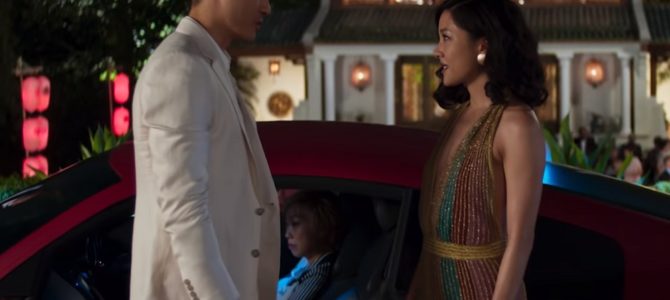
Like that other 2018 megahit “Black Panther,” the movie “Crazy Rich Asians” destroys the notion that we need “people who look like us” on the silver screen to experience catharsis. The human condition is universal, and emotions such as love, envy, and patriotism quickly get us past skin-deep differences.
This is ironic in a movie that is being touted by all and sundry as a breakthrough for “diversity and representation.” With a cast that was entirely Asian—mostly Chinese, actually—“Crazy Rich Asians” had zero diversity. It doesn’t seem to have suffered for it, however: it’s a great flick.
Hollywood stars, however, keep tripping all over themselves demanding more diversity. At this year’s Oscars, Frances McDormand made a pitch for “inclusion riders” in contracts, which demand that cast and crews include representative proportions of people of different races. Thank goodness director Jon Chu ignored McDormand when he made “Crazy Rich Asians,” and Ryan Coogler did likewise with “Black Panther.”
If judging by race, not many in the audience with me this past weekend shared the “lived experience” of the people in the movie. But that’s a silly way of looking at humanity. Most of the people there, I’m sure, would love to live like the 0.01 percenters featured in the movie.
Just as “Black Panther” appealed to everyone with a theme of patriotism, sacrifice, and heroism, “Crazy Rich Asians” is a story of love, perseverance, family ties, and the pursuit of happiness. In other words, passions and concerns inherent to the race—the human race.
Of course, when you’re an obsessive hammer everything becomes a nail, and people in need of finding diversity will find it everywhere. Thus Kimberly Yam, the “Asian Voices Editor” at Huffington Post had this apparently unironic tweet.
On the diversity of Asians in @CrazyRichMovie : "Me and Ken [Jeong] are both in that movie and we’re really comfortable just being the funny guys. Then you have other people who play the good-looking guys. And you have tall, short, fat, whatever. We can just be ourselves."
— Kimmy The Pooh (@kimmythepooh) August 16, 2018
Some of these actors weren’t ripped, get it? Diversity!
In fact the one bit of real diversity in the movie has come in for criticism by—you guessed it—the diversity police! It seems the lead male character, Henry Golding, is half Brit, half ethnic Chinese from Malaysia. NPR was on the story, and quoted Golding as saying this:
Who are you to say that I’m less Asian than you? I grew up in Asia. I was born in Asia. I’ve lived so many different Asian cultures. I’m definitely more Asian than a lot of people who have never been to Asia. But by blood and by race, they instantly say, I deserve to be Asian. I’ve worked really hard to be Asian, and I think I’m Asian enough.
The effort to make this movie somehow fit the identity politics of our age and our country have bordered on the comical. For example, according to The Wall Street Journal, the movie is being “hailed as a watershed moment for Asian American representation in Hollywood.” The movie, however, has one Asian-American character, the female lead. All the others are Singaporean Chinese. A far better title would have been “Crazy Rich Overseas Chinese.”
It is thus ironic, too, that so many welcome seeing Chinese characters cast as successful and rich. Could it truly be news to millions of millennials that Singapore, Taiwan, and Hong Kong are incredibly wealthy and sophisticated societies, as are overseas Chinese communities throughout Southeast Asia? Did anyone really need a Hollywood movie to bring this point home?
If Hollywood wants to make a movie about Chinese-Americans I suggest this plot: a family overcomes the hardships of making it in a foreign land—which always includes discrimination, just as it would in Europe, Latin America, and China itself—and through hard work, keeping the family intact and prizing education become so successful that their child is denied admission to Harvard University because Chinese-Americans are too successful.
Nah, won’t happen.
“Crazy Rich Asians” was not above attempts to play on themes of Chinese victimization, but only at the beginning. The opening scene has a wealthy Chinese family being turned away from a posh London hotel because of their ethnicity. I have asked others who, like me, frequented London in the ‘90s and even earlier, and find the possibility of that having happened then highly unlikely.
Even before that scene, the audience reads Napoleon’s famous quip that “China is a sleeping giant. Let her sleep, for when she wakes she will move the world.” But Singapore, like Taiwan and other democracies in Southeast Asia, are very leery of a People’s Republic of China that would throw its weight around regionally.
Aside from that, all the politics, identity or geostrategic, has been in the commentary, not the movie itself.









